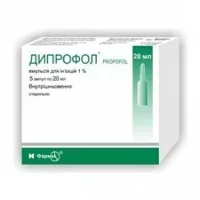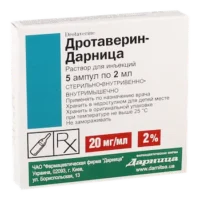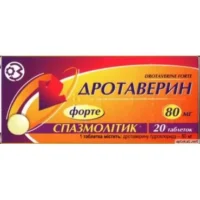Description
Papaverin Solution for Injections 20 mg/ml. 2 ml Ampoules №10
Ingredients
- Active ingredient: Papaverine hydrochloride
- Inactive ingredients: Water for injections
Dosage
Dosage: The usual dose is 10-60 mg injected slowly into a vein or muscle. The total daily dose should not exceed 240 mg.
Indications
Indications: Papaverin solution is indicated for the treatment of vascular spasms, including those associated with cerebral and peripheral vascular diseases.
Contraindications
Contraindications: Do not use in patients with hypersensitivity to papaverine or any of the inactive ingredients. Avoid use in patients with severe hypotension.
Directions
Directions: Administer as directed by a healthcare provider. Do not exceed the recommended dosage. Always check the ampoule for any signs of damage before use.
Scientific Evidence
Papaverine is a vasodilator that works by relaxing the smooth muscles in blood vessels, leading to increased blood flow. Studies have shown its effectiveness in improving blood circulation in patients with peripheral vascular diseases (PVD) and Raynaud’s phenomenon. Research published in the Journal of Vascular Surgery demonstrated the beneficial effects of papaverine in reducing vasospasms and improving limb perfusion in patients with PVD.
Additional Information
Papaverin solution for injections is well-tolerated by most patients. However, common side effects may include dizziness, headache, and flushing. It is important to monitor blood pressure during administration, especially in patients with cardiovascular conditions.
Pharmacological Effects: Papaverine acts as a non-specific phosphodiesterase inhibitor, leading to increased levels of cyclic adenosine monophosphate (cAMP) in smooth muscle cells. This results in relaxation of the vascular smooth muscle and vasodilation, improving blood flow to affected areas.
Clinical Trials: Clinical trials have shown papaverine to be effective in the management of vasospastic disorders, such as peripheral arterial disease and vasospastic angina. A study published in the European Journal of Vascular and Endovascular Surgery reported significant improvements in pain-free walking distance and quality of life in patients treated with papaverine injections.





